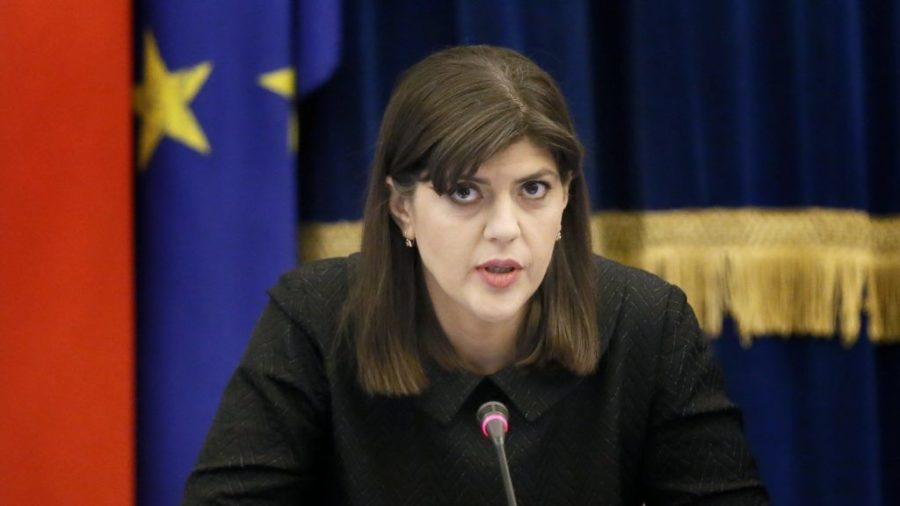Article
viadenuncia
Laura Kövesi from the tough anti-corruption fight in Romania to become the new director European Public Prosecutors Office (EPPO)

- General
La Unió Europea és coneguda per escriure dret en línies tortes, i la directiva dels whistleblowers és un exemple de llibre de com protegeix els seus interessos.
Però també és un exemple de la «sobirania» de la Unió enfront dels estats i com l’exerceix.
Laura Kövesi de la dura lluita anticorrupció a Romania a ser la nova directora Oficina de Fiscals Públics Europeus (EPPO).
Des de l’inici de la UE no s’havia instaurat un mitjà de control tan complex a l’interior dels països membres de la unió i que necessitarà gran coordinació en tots els nivells; aquesta és la missió per a Laura Kövesi, qui es planta tenaç i decidida davant el nou repte que li ha estat encomanat com a directora de l’Oficina de Fiscals Públics Europeus (European Public Prosecutor’s Office “EPPO”) amb la seva seu a Luxemburg i que protegirà els interessos de la Unió en matèria de Frau, així com de conductes que estan enumerades en la Directiva “Whistleblower” per a totes les organitzacions públiques o privades subjectes al dret de la Unió.
La directiva Whistleblower redreça el Dret de la unió escrit en línies tortes.
És sabut que al llarg del temps que el dret de la unió protegeix els seus interessos i la Directiva 2019/1937 és un manual de llibre de com protegir-los, encara que també és un exemple de “sobirania” de la UE enfront dels estats i de com exerceix la capacitat que té en matèria de dret.
És per això que Kövesi s’ha nodrit d’una xarxa de fiscals igual que d’experts i analistes que treballen per a l’EPPO a temps parcial/complet, no obstant això, encara es troba en negociacions amb les capitals, així com les institucions sobre els mitjans als quals tindrà accés.
Quins són els reptes de la nova fiscalia?
Concepción Sabadell un fiscal a temps parcial.
Espanya ha enviat a Luxemburg a Concepción Sabadell a pesar que Laura Kövesi vol que estigui destinat un fiscal a temps complet per a coordinar des d’allí tot el referent a perseguir tots els delictes per als quals l’oficina de Kövesi va ser creada.
Un dels principals reptes és fer que els països que no s’han volgut adherir a la iniciativa ho facin, en aquest aspecte, la nova fiscal enfronta un gran repte perquè Dinamarca, Hongria, Polònia, Suècia i Irlanda facin part de la nova fiscalia.
Punts destacables als quals l’EPPO ha de fer front.
Els punts per destacar de l’EPPO per a fer front a la corrupció són:
- Contractes públics sense importar la quantia entre els quals estan els serveis i productes dels mercats financers i el blanqueig de capitals.
- El finançament al terrorisme i tot allò que afecti la seguretat Europea, incloent-hi productes, béns i serveis, seguretat del transport i els controls segons la forma de transport.
- Delictes al medi ambient tal com la protecció a les radiacions, la seguretat nuclear, seguretat dels aliments, pinsos i additius per a animals, així com la sanitat i el benestar animal.
- Tot el referent a la salut pública entre els quals està la protecció als consumidors, la privacitat de les dades, la seguretat de les xarxes i les infraestructures crítiques, sistemes d’informació, etc.
És per aquesta necessitat immediata que víadenuncia ha posat en marxa les bústies de denúncia a l’ésser una necessitat de la Unió Europea, ja que poden ajudar a evitar qualsevol infracció que afecti els interessos financers de la unió contemplats en l’Article 325 del TFUE, les infraccions relatives al mercat interior de l’Article 26 apartat 2 del TFUE referent a mercats captius i dumping, així com qualsevol pràctica per a obtenir avantatges fiscals.
En els annexos de la llei es relacionen més de cent directives i un bon grapat de reglaments per a l’apropiada interpretació conforme a la nova normativa.